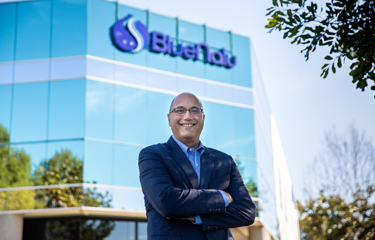San Diego, California, U.S.A.-based BlueNalu – a company developing cell-cultured seafood products – recently announced its framework designed to achieve a premier standard of food safety, quality, and traceability for its cell-cultured seafood production.
The company committed to pursuing third-party certification recognized by the international Global Food Safety Initiative (GFSI), such as the Safe Quality Food or similar programs to demonstrate the high standards for its cell-cultured seafood product beyond domestic government regulations. GFSI certification programs follow a globally consistent standard for the demonstration of safety and quality and are validated by independent third-party audits.
“BlueNalu aims to be a globally leading cell-cultured seafood producer, recognized for the highest caliber of safety, quality, and traceability,” BlueNalu President and CEO Lou Cooperhouse said. “Food quality and safety are core values at BlueNalu and it is especially important that we not only meet regulatory requirements, but also establish the highest standards to achieve trusted third-party certification. We are pleased to announce BlueNalu’s commitment to GFSI certification standards for our cell-cultured seafood.”
While cell-cultured seafood is receiving more and more attention, regulatory approval is still a major hurdle.
According to new insights from tech-enabled researcher and innovation advisory survive provider, Lux Research, more than USD 800 million (EUR 677.7 million) has been invested in the space since its arrival in 2016, and the industry has grown from a handful of startups to about 80 startups in 2021. Despite this, there are many regulatory barriers in play.
In June 2020, a Chinese official called for urgent measures to execute a regulatory framework for cell-based meat, including ways to regulate it under China's existing Novel Food regulation. In the U.S., a report published in April 2020 outlined the key tasks and responsibilities of the FDA and USDA. And in Japan, a think tank, the Center for Rulemaking Strategies (CRS), launched the Association for Cellular Agriculture to advise on regulations to commercialize cell-based meat in the Japanese market sometime last year.
While these major players are all taking different approaches to regulation, Lux Research suggests each should follow Singapore.
“In December 2020, Singapore became the first country to approve cell-based meat, spurring industry momentum,"Harini Venkataraman, Lux research analyst and author of cell-based research, said. "While this is a step in the right direction, there is still a lack of clarity on global regulations related to cell-based meat."
That development is positive, but won’t be enough, Venkataraman added.
"Singapore's regulatory approval is a positive development in the industry that sets the stage for other countries to follow suit," adds Venkataraman. "Although countries like Singapore and Israel have favorable regulatory landscapes, these small markets will not be enough for widespread adoption and market penetration. Larger nations will need to remove regulatory barriers to unlock a mass market."
The lack of global standards from government organizations makes industry leader BlueNalu’s commitment to third-party certification through GFSI significant. Building a strong quality systems framework through an international organization could help raise the standards of other companies, building a culture of providing high-quality cell-based seafood no matter what governmental regulations look like.
“It’s imperative that we create a culture of food safety and put comprehensive systems in place to enable traceability of our supply chain. We’re committed to laying the groundwork early for a scalable, top-tier food safety and quality management system that we intend to replicate globally in markets that we enter,” BlueNalu Director of Quality Assurance and Regulatory Affairs Noreen Hobayan said. “By pursuing the highest caliber of safety, quality, and traceability in our food production processes, we hope our commitment and leadership raises the industry standard for other companies in our category.”
BlueNalu’s current quality systems framework include a strong food safety culture through structured trainings and assessments; a robust quality assurance system based on GFSI benchmarking requirements; state of the art methods to verify the quality and safety of cell-cultured seafood; traceability policies designed to ensure materials, equipment, and processes meet the highest possible standard; and the pursuit premier third-party certifications.
BlueNalu plans to launch its cell-cultured mahi mahi, bluefin tuna, and other species through small-scale market testing that will be produced at its nearly 40,000 sq. ft. pilot-scale food production facility in San Diego. The company is also aiming to break ground on its first large-scale, regional production facility in the next few years.
Photo courtesy of BlueNalu







